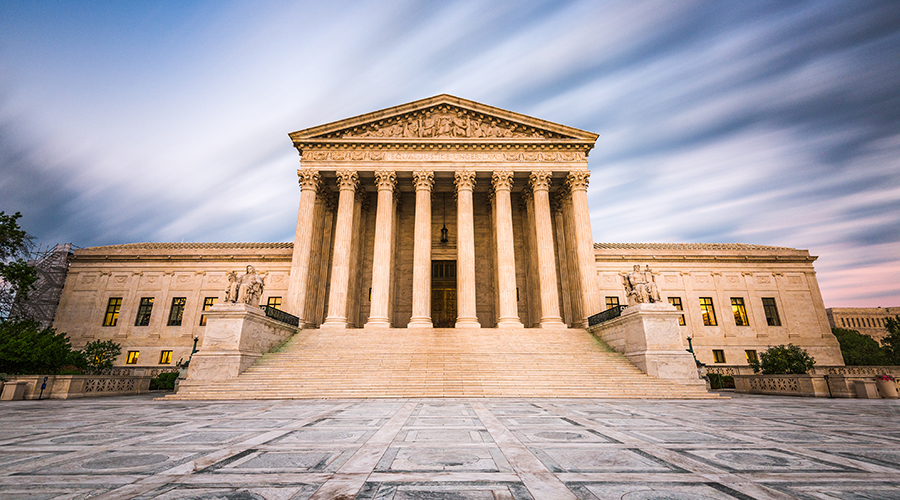Supreme Court Overturns Roe v. Wade
- June 24, 2022

The Supreme Court in a highly anticipated decision June 24 overturned Roe v. Wade, 410 U. S. 113, in holding that the Constitution does not confer a right to abortion.
"[T]he authority to regulate abortion is returned to the people and their elected representatives,” the opinion said.
The 6-3 opinion, authored by Justice Alito, and joined by Justices Thomas, Gorsuch, Kavanaugh, and Barrett, likened Roe to cases upholding segregation. “Like the infamous decision in Plessy v. Ferguson, Roe was also egregiously wrong and on a collision course with the Constitution from the day it was decided,” the Court said.
At issue in the case is Mississippi’s Gestational Age Act, which provides that “[e]xcept in a medical emergency or in the case of a severe fetal abnormality, a person shall not intentionally or knowingly perform . . . or induce an abortion of an unborn human being if the probable gestational age of the unborn human being has been determined to be greater than fifteen (15) weeks.”
Although Roe held that the right to abortion can be found in privacy protections in the First, Fourth, Fifth, Ninth, and Fourteenth Amendments, the Court said in its opinion that the right to obtain an abortion is not rooted in the Nation’s history and tradition and is not an essential component of “ordered liberty.”
“Attempts to justify abortion through appeals to a broader right to autonomy and to define one’s ‘concept of existence’ prove too much,” the Court said.
While acknowledging that stare decisis plays an important role in the courts and protects the interests of those who have taken action in reliance on a past decision, the Court found five factors weigh strongly in favor of overruling Roe and its progeny Planned Parenthood of Southeastern Pa. v. Casey, 505 U. S. 833: the nature of their error, the quality of their reasoning, the “workability” of the rules they imposed on the country, their disruptive effect on other areas of the law, and the absence of concrete reliance.
In a fiery dissent, Justices Breyer, Sotomayor, and Kagan said the decision will have far reaching consequences. “Across a vast array of circumstances, a State will be able to impose its moral choice on a woman and coerce her to give birth to a child. Above all others, women lacking financial resources will suffer from today’s decision. In any event, interstate restrictions will also soon be in the offing,” the dissent predicted.
The dissent also argued that the right Roe and Casey recognized “does not stand alone.”
“To the contrary, the Court has linked it for decades to other settled freedoms,” such as rights involving bodily integrity, familial relationships, contraception, and same sex marriage, the dissent said.
The dissent also took issue with the Court’s position on stare decisis, noting the Court’s “lone rationale for what the majority does today is that the right to elect an abortion is not ‘deeply rooted in history.’”
But the same could be said of most of the rights “the majority claims it is not tampering with,” the dissent said.
“So one of two things must be true. Either the majority does not really believe in its own reasoning. Or if it does, all rights that have no history stretching back to the mid19th century are insecure. Either the mass of the majority’s opinion is hypocrisy, or additional constitutional rights are under threat. It is one or the other,” the dissent argued.
Dobbs v. Jackson Women’s Health Organization, No. 19–1392 (U.S. June 24, 2022).
Look for upcoming content coming soon from AHLA on the effects of the Dobbs decision on health care providers, employers, data privacy, and other important issues.